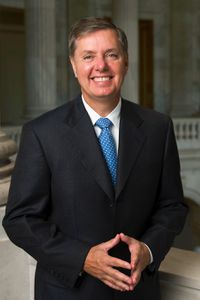Ian Smith
In 2022, Ian Smith pursued the Republican nomination for New Jersey’s 3rd Congressional District. Smith gained notoriety for defying state COVID-19 restrictions at his New Jersey gym. His congressional campaign focused on conservative policies and support from former President Donald Trump. However, Smith lost the contentious Republican primary to David Richter, ending his bid for Congress. Smith’s high-profile campaign highlighted divisions within the GOP and the dynamics of NJ’s closely divided 3rd District.
Background on Ian Smith
Personal history
Ian Smith was born in Philadelphia, Pennsylvania and later attended Arizona State University, graduating in 2016 with a bachelor’s degree. He ran a gym called Atilis Gym in Bellmawr, New Jersey. Outside of his business interests, Smith did not have prior political experience before running for Congress in 2022.
Career and business experience
Smith was best known as the co-owner of Atilis Gym, which opened in 2018. When New Jersey imposed COVID-19 restrictions in 2020, Smith loudly protested Governor Phil Murphy’s executive orders. He refused to close his gym, racking up citations and scrutiny. Smith positioned himself as a champion of small businesses and an opponent of lockdowns. This elevated his local profile.
Political views and policies
Smith ran for Congress as an America First conservative Republican. His views aligned with former President Donald Trump on issues like immigration, law enforcement support, election integrity, and tax policy. Smith favored securing the Mexican border, defending police funding, auditing the 2020 election, and cutting taxes and regulations to spur economic growth.
Smith’s Run for Congress in 2022
Decision to run in NJ’s 3rd District
In 2021, Smith set his sights on the House seat in New Jersey’s 3rd Congressional District, which covers parts of Burlington and Ocean counties. The district’s boundaries were redrawn in the 2020 redistricting process, making it slightly more favorable for Republicans. Smith saw an opportunity to flip the seat red.
Republican primary campaign
Smith campaigned on resisting COVID mandates, reversing economic decline, and stopping illegal immigration. He touted endorsements from Marjorie Taylor Greene, Rand Paul, and crucially, Donald Trump. However, Smith faced backlash over his past associations with white supremacist groups, clouding his candidacy.
Support and endorsements
Smith drew support from Trump-aligned Republicans and grassroots conservatives energized by his defiance of COVID restrictions. Major endorsements came from Trump, Members of the House Freedom Caucus, and Turning Point USA. However, the Republican establishment largely backed his primary opponent.
Primary election loss
On June 7, 2022, Smith lost the contentious Republican primary to former Burlington County Freeholder David Richter. Richter criticized Smith as an extremist candidate who would jeopardize Republicans’ chances of flipping the district. Richter’s moderate profile appealed more to the GOP mainstream.
Controversies and criticisms
Smith’s past links to white nationalist groups surfaced during the campaign, including a photo of Smith at a gathering with a neo-Nazi tattoo. Smith denied claims of racism, but the associations allowed opponents to portray him as a far-right extremist. His stances on COVID mandates and stolen election claims also faced scrutiny.
Key Issues in Smith’s Campaign
Opposing COVID-19 restrictions
As a gym owner who rebelled against lockdowns, Smith made opposition to COVID-19 restrictions and mandates central to his campaign. He tapped into GOP anger at pandemic policies and vowed to resist any future restrictions from Washington. This messaging resonated with his base.
Economic and tax policies
Smith blamed Democratic leadership for soaring inflation and advocated supply-side economics to turn around the economy. He called for deregulation, reduced government spending, lower corporate and income taxes, and expanded fossil fuel production to counter rising costs.
Immigration and border security
Citing a surge in illegal crossings, Smith pledged to secure the Mexican border through extended physical barriers, increased patrols and technology, and cooperation with Mexico. He framed border security as vital for community safety and controlling immigration.
Supporting law enforcement
Painting Democrats as anti-police, Smith strongly backed law enforcement funding and training. He opposed measures to reduce police budgets or limit their tactics and powers. Smith vowed to be a pro-police voice in Congress.
Allegations of racism and extremism
Critics accused Smith of secretly harboring racist and extremist views, citing his past associations with white nationalist groups and spreading of conspiracy theories. Smith denied the allegations, but they still damaged his image as a mainstream candidate.
Smith’s Rival Candidates
David Richter (Republican primary)
David Richter, a moderate Republican and former Freeholder, defeated Smith in the primary. Richter promoted himself as the electable GOP candidate without Smith’s baggage. He critiqued Smith as unelectable due to his COVID defiance and far-right ties. Richter argued he could build a winning coalition.
Andy Kim (Democratic incumbent)
Incumbent Democrat Andy Kim has represented the district since 2019. He would have faced the GOP nominee in November. Kim framed Smith as an extremist who threatened democratic values. He ultimately defeated David Richter comfortably in the general election.
Significance of the 2022 Race
Competitiveness of NJ’s 3rd District
New Jersey’s 3rd District is increasingly competitive, with Republicans seeing it as a pickup opportunity. The seat flipped between parties in recent House elections. Smith aimed to tap into GOP momentum, but his loss showed the district remains challenging terrain for Republicans.
Role of Trump’s endorsement
Trump’s backing gave Smith major credibility with the Republican base but also reinforced perceptions he was too far right for moderate voters. It highlighted Trump’s continuing influence in primaries, which can polarize GOP contests.
Impact on future elections
Smith’s defeat signaled many Republicans in competitive districts see candidates like him as liabilities, no matter Trump’s blessing. His race exemplified the internal GOP war between hardline populists and more electable establishment figures, which will continue in 2024.
Conclusion
Ian Smith’s aggressive and defiant persona energized populist conservatives but proved too divisive to win the Republican nomination in a swing district. Smith’s defeat demonstrated Trump’s limits in shaping contested primaries. While Smith’s campaign flamed out, his defiance of COVID policies offered a model future Republican candidates may follow. Smith’s rise and fall capped a revealing battle over the GOP’s direction in a critical House district.
FAQs
Q: What was Ian Smith best known for before his congressional run?
A: Ian Smith gained notoriety in 2020 for refusing to close his New Jersey gym despite state COVID-19 restrictions. His defiance of the lockdown orders raised his public profile.
Q: What were some of Ian Smith’s main policy positions and campaign themes?
A: Ian Smith ran as a conservative Republican, campaigning on securing the border, cutting taxes and regulations, opposing COVID mandates, supporting law enforcement, and defending gun rights.
Q: Why did Ian Smith lose the 2022 Republican primary?
A: Ian Smith lost to David Richter, who condemned Smith as an extremist who would cost Republicans the seat. Richter appealed more to moderate GOP voters in the swing district.
Q: How did former President Trump factor into the race?
A: Trump endorsed Smith, rallying the GOP base but also linking Smith to Trump’s divisive persona. This hurt Smith with anti-Trump independents and moderates.
Q: What was the political significance of Smith’s defeat?
A: Smith’s loss despite Trump’s backing signaled limits to Trump’s influence with primary voters. It also reflected internal GOP debates over candidates who are very pro-Trump versus more electable.







